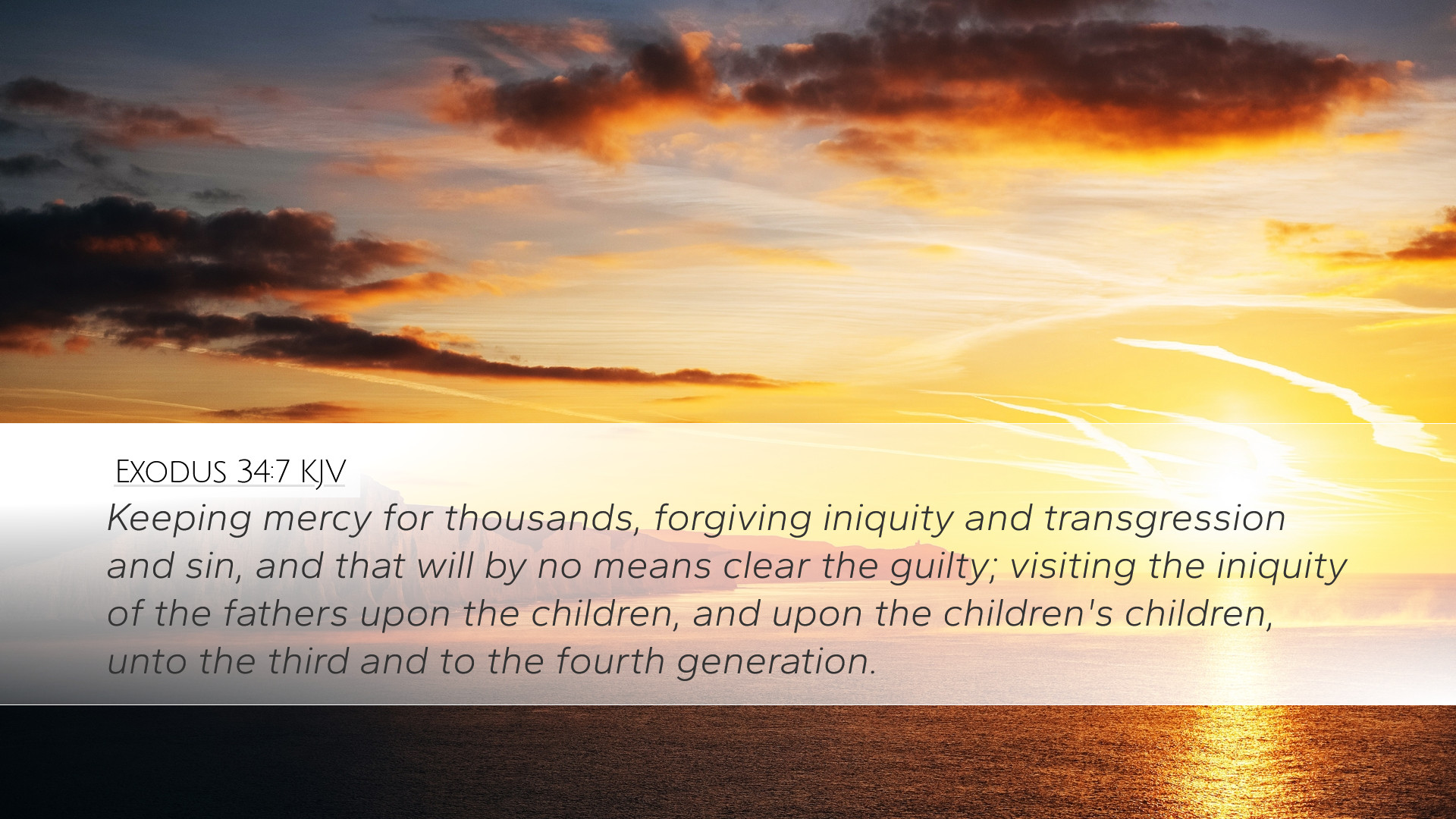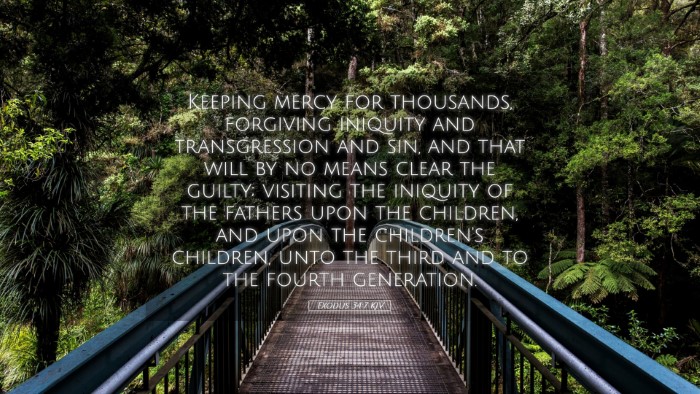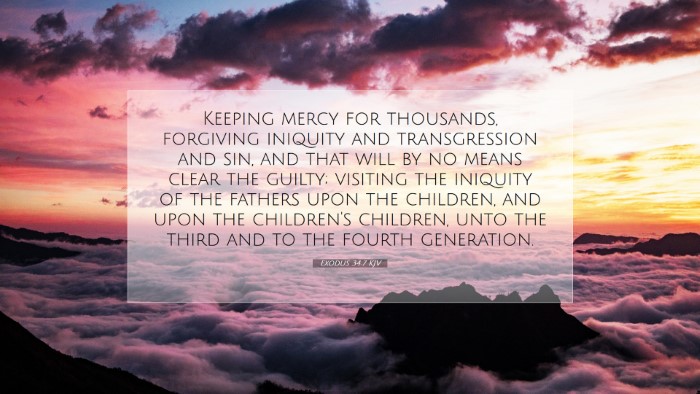Exegetical Commentary on Exodus 34:7
Verse: "Keeping mercy for thousands, forgiving iniquity and transgression and sin, and that will by no means clear the guilty; visiting the iniquity of the fathers upon the children, and upon the children's children, unto the third and to the fourth generation." (Exodus 34:7, KJV)
Introduction
The rich theological implications of Exodus 34:7 can be discerned through various layers of meaning embedded in this verse. It is pivotal in understanding the nature of God, the relationship between divine justice and mercy, and the generational impact of sin. This commentary draws insights from notable public domain scholars, including Matthew Henry, Albert Barnes, and Adam Clarke, to elucidate the depth of this verse.
Contextual Background
This verse appears in the broader context of God revealing His character to Moses after the Israelites had sinned by creating the golden calf. In this moment, God proclaims His name and attributes, highlighting both His mercy and justice. The context is crucial as it frames God within the covenant relationship He has established with His people, emphasizing His holiness and the covenantal responsibilities that accompany it.
Theological Insights
- God's Mercy: The first phrase "Keeping mercy for thousands" emphasizes God's unwavering compassion. Matthew Henry notes that God's mercy is abundant and extends to many, showcasing a God who delights in forgiveness. This portrays God's readiness to forgive those who genuinely repent.
- Forgiveness of Sin: The clause "forgiving iniquity and transgression and sin" reiterates the multifaceted nature of human sin and the glories of divine forgiveness. Albert Barnes highlights how these terms signify different dimensions of wrongdoing, and God's willingness to overlook such failures offers profound hope for restoration.
- Justice and Accountability: The phrase "and that will by no means clear the guilty" presents a stark contrast to the preceding statements. Adam Clarke elaborates that while God is merciful, He upholds justice. This duality serves as a foundation for understanding the Gospel, wherein Jesus Christ satisfies justice while extending mercy to believers.
Generational Consequences of Sin
The latter portion of the verse discusses the "visiting the iniquity of the fathers upon the children." This has been a subject of much discussion among theologians.
- Impact of Parental Sin: Henry indicates that this suggests the natural consequences of sin can tangibly affect descendants. It points to the realities of cultural and familial legacies, wherein children may suffer from the repercussions of their ancestors’ wrongdoing.
- Righteousness of God: Barnes asserts that while children may bear some consequences, this does not equate to God punishing the innocent. Each individual remains accountable for their own actions before God, which displays His righteousness.
- Importance of Repentance: Clarke notes that recognizing the generational impact of sin can be a crucial motivator for repentance within families. Understanding the gravity of sin's repercussions could lead subsequent generations toward seeking God's mercy rather than continuing cycles of transgression.
Conclusion
Exodus 34:7 serves as a profound doctrinal statement about the nature of God—His mercy, willingness to forgive, and the inevitable exercise of His justice. It encapsulates the essence of the covenant relationship between God and His people, highlighting both the seriousness of sin and the joy of forgiveness offered through true repentance.
This verse urges modern believers—pastors, scholars, and students alike—to reflect on their own lives and family histories as they consider the dual attributes of God. Recognizing both the divine willingness to forgive and the unavoidable reality of justice remains critical to developing a robust faith that embraces the entirety of God's character.


